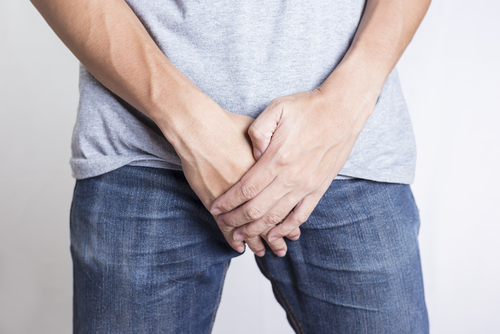An inguinal hernia is the protrusion of abdominal contents, usually the intestines, into the inguinal region through a weakness or defect in the abdominal wall. In men, the testes usually descend through this canal shortly before birth. In women, the canal is the location for the uterine ligament. The resulting bulge can be painful, especially when you cough, bend over or lift a heavy object.
Some have no apparent cause, but others can be due to the following:
- Increased pressure within the abdomen
- A pre-existing weak spot in the abdominal wall
- A combination of increased pressure within the abdomen and a pre-existing weak spot in the abdominal wall
- Straining during bowel movements or urination
- Strenuous activity
- Pregnancy
- Chronic coughing or sneezing
Factors that contribute to developing an inguinal hernia include:
- Being male. Men are eight times more likely to develop inguinal hernia
- Older age. Muscles weaken as you age.
- Family history
- Chronic cough
- Chronic constipation
- Pregnancy. Being pregnant can weaken the abdominal muscle and cause increased pressure inside your abdomen.
- Premature birth or low birth weight.
- Previous inguinal hernia or hernia repair.
Complications of an inguinal hernia include:
- Pressure on surrounding tissue. In men, large hernias can extend into the scrotum, causing pain and swelling.
- Incarcerated hernia. If the contents of the hernia become trapped in the weak point in the abdominal wall, it can obstruct the bowel, leading to severe pain, nausea, vomiting, and the inability to have a bowel movement or pass gas.
- Strangulation. An incarcerated hernia can cut off blood flow to part of your intestine. Strangulation can lead to the death of the affected bowel tissue.


